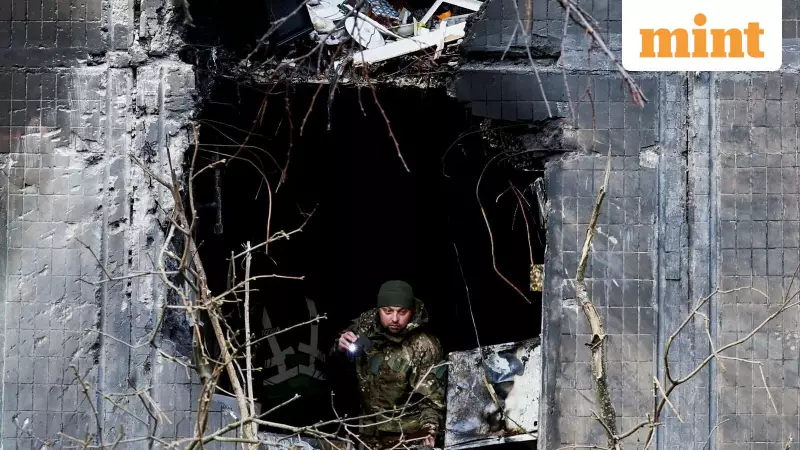
The European Union's ambitious plan to provide Ukraine with a massive financial lifeline worth approximately $213 billion has hit a significant roadblock in Belgium, where officials fear catastrophic financial consequences and potential Russian retaliation.
Belgium's Financial Fears Halt Critical Ukraine Aid
European officials are working against time to resolve Belgium's objections to a proposal that would use frozen Russian assets to fund Ukraine's defense efforts. With Ukraine projected to run out of cash by spring 2025, the EU sees this loan package as the most viable solution to keep Kyiv's military operations funded.
The controversial plan involves lending up to 183 billion euros (approximately $213 billion) to Ukraine, using Russian financial assets currently immobilized in Belgium as collateral. However, Belgian authorities are deeply concerned that if the scheme encounters legal or political challenges, their country could face liabilities equivalent to one-third of its entire national economic output.
Political and Legal Complications Mount
The situation is further complicated by Belgium's domestic political landscape. The governing coalition is currently grappling with a budget crisis, increasing pressure on Prime Minister Bart De Wever to demonstrate he's protecting Belgian national interests. De Wever recently met with European Commission President Ursula von der Leyen, with both leaders aiming to reach an agreement before a crucial summit next month.
At the heart of the dispute are conflicting assessments of legal risks associated with the reparations loan. While EU officials acknowledge some risk exists, they believe it's minimal and manageable. Belgian officials, however, perceive substantial dangers that could have far-reaching consequences for their economy.
The Mechanics of the Controversial Plan
The proposal centers around utilizing part of the $300 billion in Russian central bank assets that the EU, US, and other allies froze following Russia's full-scale invasion of Ukraine in 2022. Approximately two-thirds of these assets are held with Belgian financial intermediary Euroclear, a securities depository that manages billions in client assets.
Under the EU's scheme, Ukraine would receive loans generated from cash reserves accumulated at the European Central Bank as Russian assets at Euroclear reach maturity. Crucially, Ukraine would only need to repay the money if Russia pays war reparations to Kyiv after the conflict ends - a scenario most consider highly unlikely.
The European Commission would provide Euroclear with a contractual guarantee, essentially a promissory note, ensuring the company's balance sheet remains protected if it ever must return assets to Russia. EU member states would collectively guarantee that the commission has sufficient resources for potential repayment obligations.
Broader Implications and Alternative Solutions
Prime Minister De Wever has proposed expanding the plan to include non-EU countries such as the United States, United Kingdom, and Japan. This approach echoes concerns raised by European Central Bank President Christine Lagarde, who warned that the EU acting alone could damage confidence in euro-denominated assets.
While the G7 nations continue discussions about using frozen Russian assets, and British and Canadian officials have indicated willingness to transfer funds to Ukraine, neither Washington nor Tokyo has committed to similar actions. As De Wever notably remarked, "The fattest chicken is in Belgium but there are other chickens around."
The EU is exploring alternative funding mechanisms, including member states collectively raising loans to support Ukraine. However, such approaches would likely require unanimous agreement from all EU countries - including Hungary, which has consistently blocked fresh EU loans for Ukraine.
As Nicolas Véron, senior fellow at Brussels-based think tank Bruegel, observed, "There are alternatives, but they are much less attractive because they are more costly for everyone." The race continues to find a solution before Ukraine's financial situation becomes critical in the coming months.





